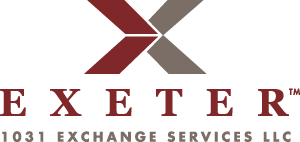Qualified Use Property: Do Your Assets Qualify for Exchange Treatment?
Your relinquished and replacement properties will qualify for 1031 exchange treatment if they are considered to be qualified use property. And, once again there is a lot of confusing, misleading and/or inaccurate educational material and information floating around the internet today regarding what type of property or assets will qualify as qualified use property for 1031 exchange purposes.
This article is designed to help you break down the qualified use property issues and requirements into an easy to understand format, and as always you are more than welcome to contact our 1031 exchange experts to answer any questions or clarify any issues that you may have. We are always available to assist you with your 1031 exchange planning.
Qualified Use Property
The most important point is that your properties or assets must be held for investment or used in your trade or business. Properties that are not held for investment or used in your trade or business (i.e. they are held for sale) will not qualify for 1031 exchange treatment. You will find a lot of different opinions on this issue because the codes and regulations have not adequately defined held for investment or use in a business.
Intent to Hold
You will notice that many investors and their advisors get hung up on the length of time that you have (or have not) held title to your property when trying to decide whether it would be considered qualified use property and therefore qualify for 1031 exchange treatment. The amount of time is not the real issue here.
Your intent to hold your properties for investment purposes is what really matters. You must be able to prove that you had the intent to hold your relinquished properties and your like-kind replacement properties for investment or use in your trade or business should you be selected for an audit.
One of the best ways to demonstrate your intent to hold is to do just that — hold your properties sufficiently long enough so that you can easily prove you had the intent to hold for investment. You can read our web page entitled 1031 Exchange Holding Requirements for Like-Kind Replacement Properties for a more complete discussion of this topic.
Properties Held For Investment
Properties held for investment purposes can be any property or asset that you acquire and hold for income production (rental or leasing activities) or for growth in value (capital appreciation). Properties held for investment do not need to produce income or cash flow. They merely have to be held for investment in order to qualify for 1031 exchange treatment.
Properties Used in Your Trade or Business
You can also acquire and use a property or asset in your trade or business and it will qualify for tax-deferred exchange treatment. You might acquire a commercial office building (real estate) to operate your business from, or you may acquire a large piece of machinery or manufacturing equipment (personal property) to produce or manufacture your product. Properties or assets used in your trade or business will qualify for 1031 exchange treatment.
Properties Held For Sale (Inventory)
Properties or assets acquired and held for sale do not qualify as held for investment or used in a trade or business and will typically not qualify for 1031 exchange treatment. The acquisition of property for the purposes of fixing it up and then selling it, or what many refer to as flipping property, is a perfect example of property being held for sale and not held for investment. Acquiring a multi-family property and converting into condos and then selling individually is also a good example of property held for sale and not for investment. There may be more advanced planning strategies that you might be able to employ so that these transaction may qualify, so please contact one of our senior 1031 exchange advisors for assistance.
Domestic Property versus Foreign Property
Property sold in one state may be exchanged for property located in another state, provided they are located with the United States of America. Only domestic (United States) property can be exchanged for domestic property and non-domestic (foreign) property can be exchanged for non-domestic property. Domestic property can not be exchanged for non-domestic property. Certain state and/or local exceptions may apply, so consult with your local legal and tax advisor.
